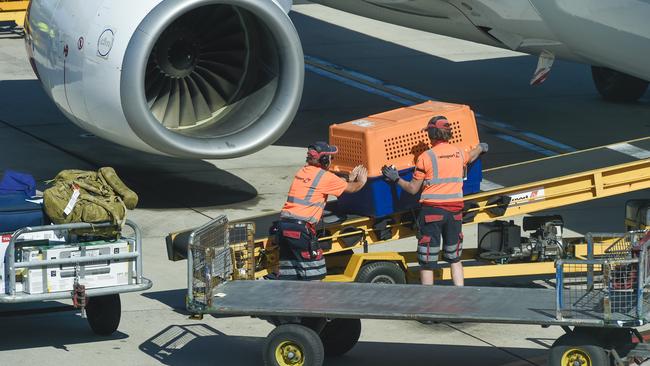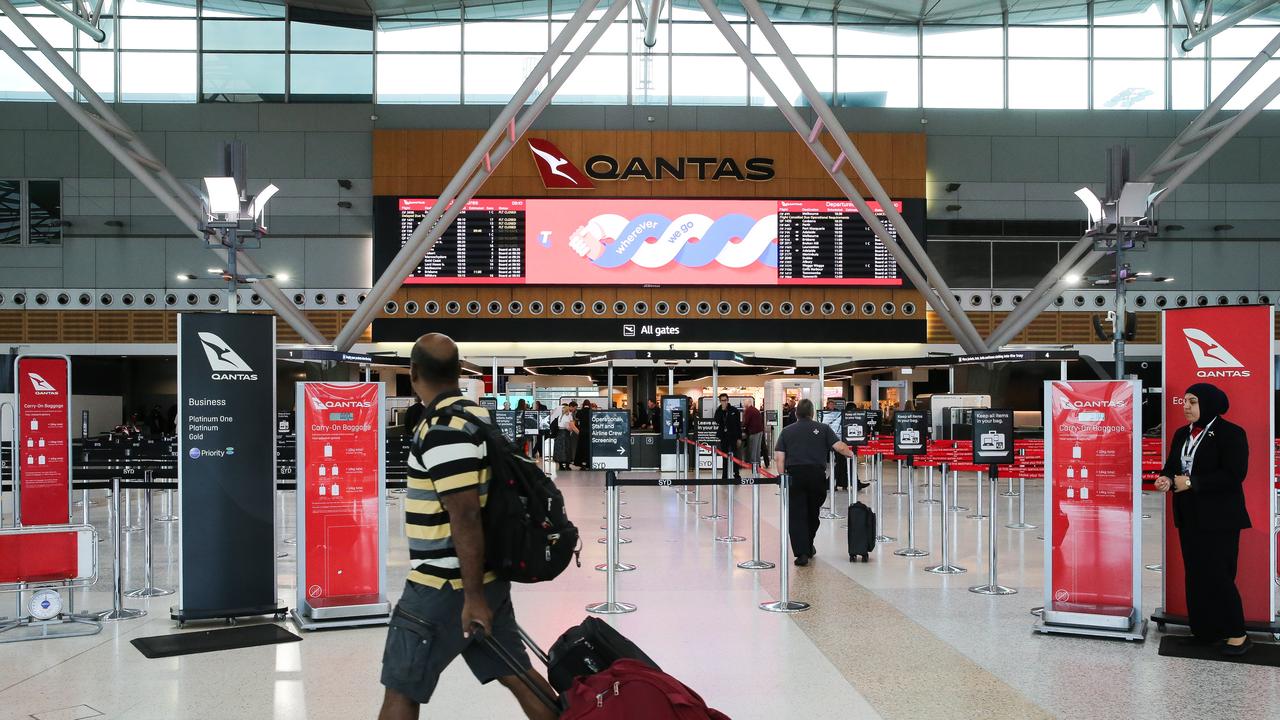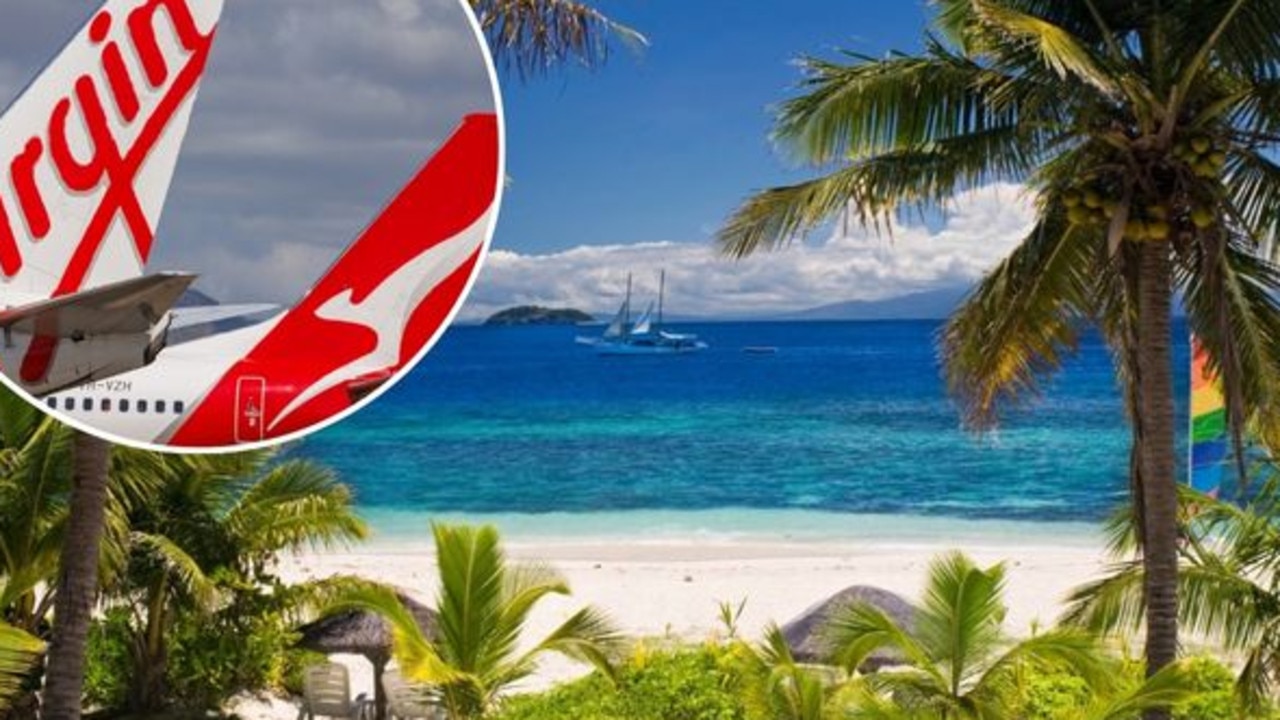Union’s Qantas case up in the air
A Federal Court hearing has shone a revealing light on Qantas’s decision to outsource 2400 ground handling workers.

Travel
Don't miss out on the headlines from Travel. Followed categories will be added to My News.
The Federal Court will decide whether Qantas was motivated by a desire to reduce “militant” union representation among its workforce when it outsourced 2400 ground-handling workers.
Judge Michael Lee said the case, brought by the Transport Workers Union, was not complex and would come down to whether the decision was influenced by “prescribed reasons” such as union membership or workers exercising their rights.
On the first day of hearings, the TWU claimed Qantas saw the COVID-19 crisis as a chance to enact a long-term plan to use third party providers in the place of baggage handlers, cleaners and ground crew.
The court heard a report written by then chief operating officer Paul Jones, dated April 27, 2020, said the operating environment presented an opportunity to accelerate change through partial or complete outsourcing of ground handling.
The report discussed the “challenges of ASU (Australian Services Union) rates” that were about 25 per cent above market, and suggested that could be addressed by obtaining a labour supply through a third party.
Under cross-examination by Mark Gibian SC for the TWU, Qantas executive manager airports Colin Hughes insisted the report was simply presenting ideas for consideration.
“I think it was a problem statement and I took this to be a series of things to consider in respect of that,” Mr Hughes said.
Mr Gibian said: “The heading is ‘Providing a pathway to implement third party labour supply’ — that’s what was being contemplated.”
“I think it was contemplating a number of things,” Mr Hughes replied.
The TWU’s case must prove Qantas made the decision to outsource its ground-handling workers for a prohibited reason, such as union membership or employees exercising their workplace rights.
In his opening statement, Neil Young QC for Qantas said the decision was made solely by Qantas Domestic and International chief executive Andrew David based on the dire financial position in which the airline had found itself during the crisis.
“The immediate and ongoing financial impact to the Qantas Group of the pandemic has been extremely severe. There was a combined revenue loss of $11bn from March to December, a 91 per cent reduction in underlying profit for the 2020 financial year, a $2.7bn tax-free loss for the fiscal year and a $1.5bn statutory loss,” Mr Young said.
“Because of those circumstances, each business unit was tasked with delivering significant cost reductions and restructuring savings.”
He said the airports business was tasked with a cost cut of 72 per cent in the 2021 financial year, and 46 per cent plus a further 10 per cent efficiency target in the following financial year.
To meet those requirements, managers came up with a number of options, of which only one — the outsourcing of all ground handling staff — met all strategic objectives, he said.
Justice Lee said the case would hinge on the evidence of Mr David and whether his decision was “unaffected in any way by any prescribed reason”.
He allowed evidence that Qantas CEO Alan Joyce had referred to the TWU as “militant”, saying it was relevant that the relationship between the two parties had been antagonistic.
The hearing will continue on Tuesday.
Originally published as Union’s Qantas case up in the air



